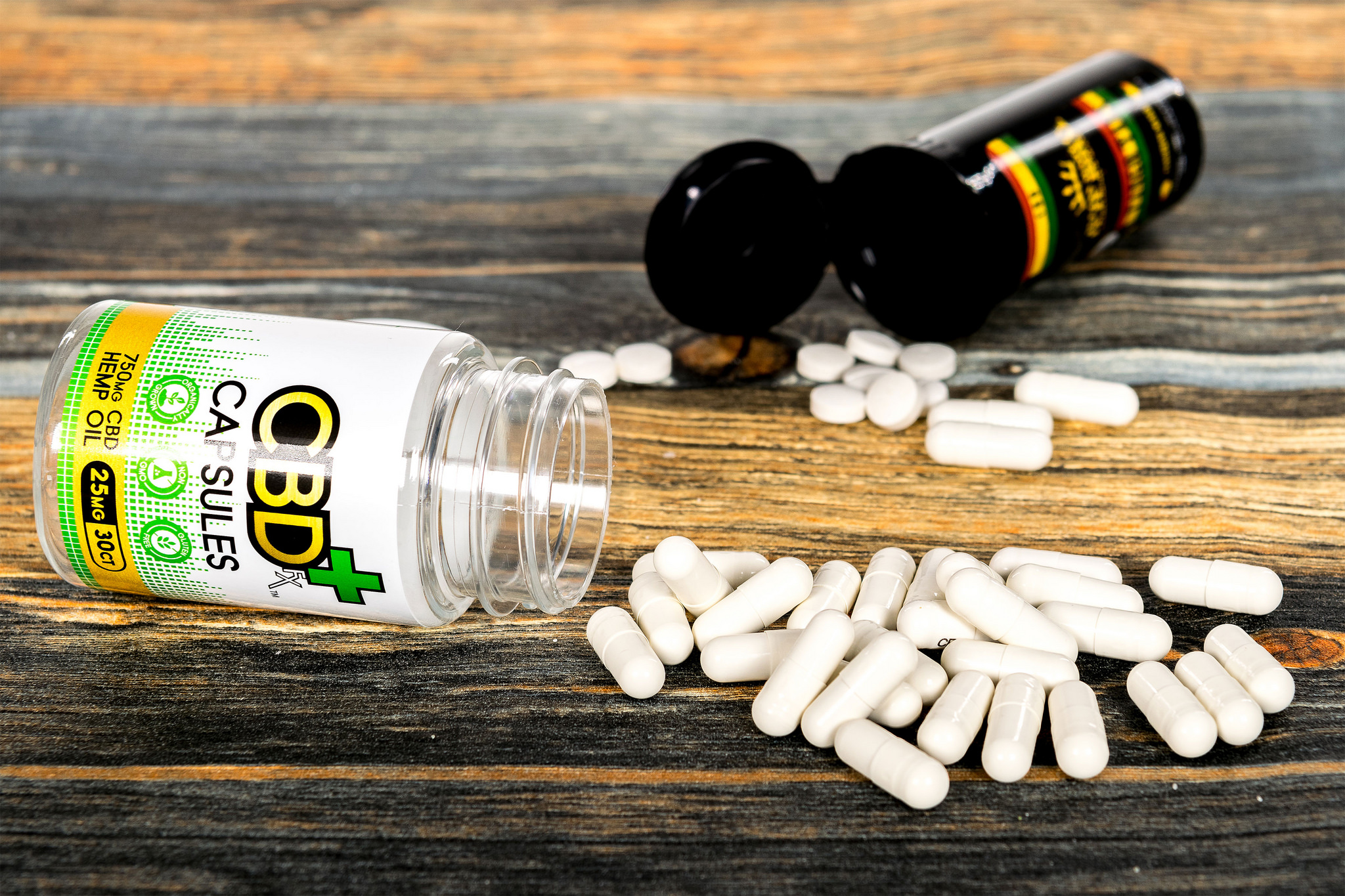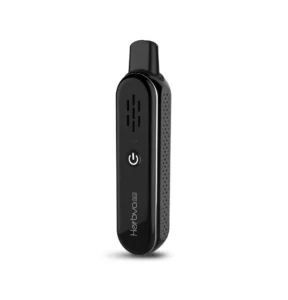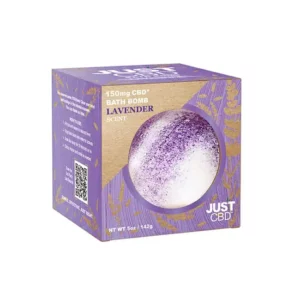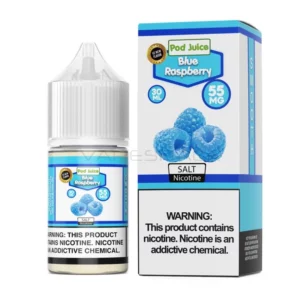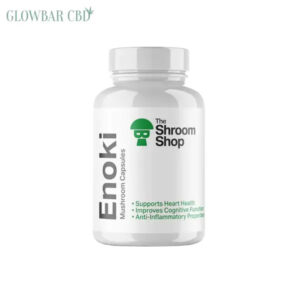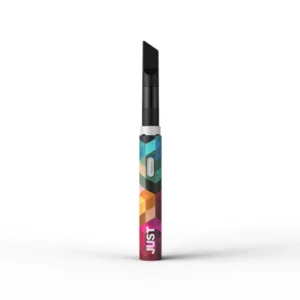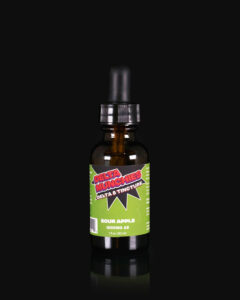CBD pills are one of the fastest increasing categories of consumption today, especially among younger consumers. As CBD products have become more widely available, people have been increasingly interested in purchasing CBD-dominant items, particularly those that can provide pain, stress, anxiety, and depression treatment.
Cannabidiol is a phytocannabinoid produced by hemp and marijuana. Cannabinoids, CBD and THC, interact with the body through the endocannabinoid system, which works hand in hand with the central nervous system to promote body homeostasis. Research studies indicate that CBD can be used as a medication for various mental illnesses such as PTSD and Parkinson’s, skin issues such as fungal infections, chronic acne and psoriasis, and therapeutic properties such as reducing chronic pain and inflammation properties. The main forms of CBD are oils, tinctures, vapes, topicals, edibles, and CBD capsules. These forms influence the method of administration, which in turn affects the absorption rate and the product’s efficacy on its user. This article seeks to discuss CBD capsules or pills.
What Are CBD Pills
CBD tablets are cannabinoids that are extracted and suspended in a fatty oil and come either in the form of a capsule, pill, or tablet. CBD capsules are more commonly made from CBD isolates. CBD isolate is a pure form of CBD in its pure form, with no other components such as terpenes and flavonoids. These capsules are made with a combination of starch, CBD isolate, flavor, and other components that help the capsule take its form and shape. These capsules are often taken as other body supplements such as vitamin pills. Other CBD tablets are made using CBD oil. These capsules may be made using either full-spectrum CBD oil or broad-spectrum CBD oil. CBD oil is extracted from hemp plants’ leaves, flowers, and stems through various methods. These methods include supercritical carbon dioxide concentration, ethanol extraction, and propanol or butane extraction. To extract CBD oil from liquid CO2, it is liquidated by increasing the temperature and pressure with a compressor. The temperature must also be raised, which can be accomplished with the help of a heater. The supercritical carbon dioxide is then passed through some high-quality cannabis. This is how CO2 extracts the essential trichomes (the sugary-looking coating of the cannabis plant), CBD and terpene oils (essential oils) from the plant. The oil is often processed into a pill made from gelatin or other vegan-based materials.
Benefits of CBD Pills
Reduce Inflammation and Pain
According to Iannotti et al. (2014), CBD stimulates the activity of vanilloid receptors in the brain. These receptors control the body’s response to pain and inflammation. As a result, pain and inflammation are reduced when CBD activates the vanilloid receptors. This renders CBD pills a promising treatment for illnesses such as fibromyalgia.
Inhibit The Growth of Cancer Cells
McAllister et al. (2007) discovered that CBD prevents cancer cells from spreading by inhibiting specific bodily functions. In addition to affecting cancer cell growth, CBD has also been shown to induce cancer cells to die.
CBD medications and brain health
CBD defends the body and brain from toxic chemicals (free radicals) as an antioxidant. Free radicals harm the body and brain. Alzheimer’s disease can be exacerbated by developing free radicals in the brain. According to Weston-Green (2018), CBD’s antioxidant qualities combat the impacts of this (and other) severe brain illnesses.
Reduce Nausea and Enhance Hunger
CBD aids in digestion in two ways. To begin with, Lohar & Rathore (2013) noted that this compound increases hunger, which makes it simpler to consume the calories needed to maintain a healthy weight and diet. Second, it keeps sickness at bay, allowing you to keep calories in your body. According to Wang et al. (2020), cancer treatment patients may benefit most from CBD’s anti-inflammatory and anti-cancer properties. Various conditions and even therapies can cause this. Your body may be unable to heal properly because of these adverse effects. These two issues can be alleviated with the help of CBD.
Anti-Anxiety and Depression Treatment
The brain’s adenosine and serotonin receptors play a role in your feelings of anxiety and despair. Both are affected by CBD. R de Mello Schier et al. (2014) asserted that CBD activates adenosine receptors in CBD capsules, allowing the receptors to do their job more effectively. In this way, it reduces the nervous and paranoid symptoms that often accompany an anxiety condition. Serotonin receptors in the brain are activated by CBD in CBD tablets, making them antidepressants. As a result, CBD capsules appear to be a viable therapeutic option for a wide range of mental health conditions.
Managing Seizure
Seizures are episodes of uncontrollable shaking and disorientation brought on by abnormalities in the brain’s electrical activity. Like anxiety and depression (all brain-based disorders), seizures can be exceedingly challenging to treat. According to Rodríguez-Muñoz et al. (2018), CBD stabilizes the electrical impulses in the brain and prevents them from going amok by CBD pills. As a result, seizures are significantly reduced.
To Address Psychotic Illnesses
According to de Almeida & Devi (2020), CBD increases serum anandamide levels in the brain to treat psychotic diseases, such as schizophrenia. Some pharmaceuticals can help with this, but the side effects can be considerable.
How To Purchase CBD Pills
Before acquiring CBD pills, you may want to consider the following:
- The purpose of using CBD.
- Types of CBD: full-spectrum CBD, broad-spectrum CBD, or CBD isolate.
- Access to the COA for the product.
- The quantity of CBD the pills contain.
Conclusion
CBD capsules present an easy way to administer CBD into your system orally. These pills are either encapsulated into a gelatin capsule or may be made from pure CBD isolates that can be infused with starch to make a tablet. In addition, they can either be flavored or just plain in taste, depending on your desire. However, these tablets vary in strength and concentration, which can alter the dosage that is effective for one. Seek a medical professional’s advice on the appropriate dosage.
References
De Almeida, D. L., & Devi, L. A. (2020). Diversity Of Molecular Targets And Signaling Pathways For CBD. Pharmacology Research & Perspectives, 8(6), E00682.
Iannotti, F. A., Hill, C. L., Leo, A., Alhusaini, A., Soubrane, C., Mazzarella, E., … & Stephens, G. J. (2014). Nonpsychotropic Plant Cannabinoids, Cannabidivarin (CBDV) And Cannabidiol (CBD), Activate And Desensitize Transient Receptor Potential Vanilloid 1 (TRPV1) Channels In Vitro: Potential For The Treatment Of Neuronal Hyperexcitability. ACS Chemical Neuroscience, 5(11), 1131-1141.
Lohar, V., & Rathore, A. S. (2013). Cannabinoids: Pharmacological Profile Of Promising Molecules. Phytopharmacology, 4(1), 41-52.
Mcallister, S. D., Christian, R. T., Horowitz, M. P., Garcia, A., & Desprez, P. Y. (2007). Cannabidiol As A Novel Inhibitor Of Id-1 Gene Expression In Aggressive Breast Cancer Cells. Molecular Cancer Therapeutics, 6(11), 2921-2927.
Wang, B., Kovalchuk, A., Li, D., Ilnytskyy, Y., Kovalchuk, I., & Kovalchuk, O. (2020). In Search Of Preventative Strategies: Novel Anti-Inflammatory High-CBD Cannabis Sativa Extracts Modulate ACE2 Expression In COVID-19 Gateway Tissues.
Weston-Green, K. (2018)The United Chemicals Of Cannabis: Beneficial Effects Of Cannabis Phytochemicals On The Brain And Cognition. In Recent Advances In Cannabinoid Research. Intechopen.
R De Mello Schier, A., P De Oliveira Ribeiro, N., S Coutinho, D., Machado, S., Arias-Carrión, O., A Crippa, J., … & C Silva, A. (2014). Antidepressant-Like And Anxiolytic-Like Effects Of Cannabidiol: A Chemical Compound Of Cannabis Sativa. CNS & Neurological Disorders-Drug Targets (Formerly Current Drug Targets-CNS & Neurological Disorders), 13(6), 953-960.
Rodríguez-Muñoz, M., Onetti, Y., Cortés-Montero, E., Garzón, J., & Sánchez-Blázquez, P. (2018). Cannabidiol Enhances Morphine Antinociception, Diminishes NMDA-Mediated Seizures And Reduces Stroke Damage Via The Sigma 1 Receptor. Molecular Brain, 11(1), 1-12.
Crystal is a qualified doctor and a sex and relationships adviser at Dimepiece LA. In her spare time, she enjoys nature and is a budding tennis enthusiast. Crystal is involved with several governmental and educational initiatives aimed at increasing awareness about sexual health and making free advice more accessible to everyone.
[email protected]
- CBD For Sleep By Just CBD-cSlumber Serenade: A Restful Journey with Just CBD’s CBD for Sleep - October 10, 2023
- What is the Bioavailability of CBD? - February 20, 2023
- Full spectrum CBD+THC gummies - October 23, 2022



